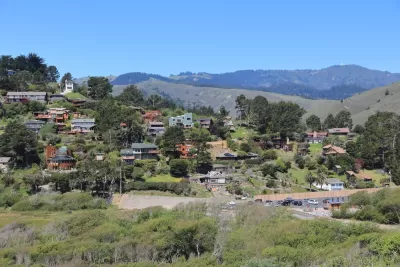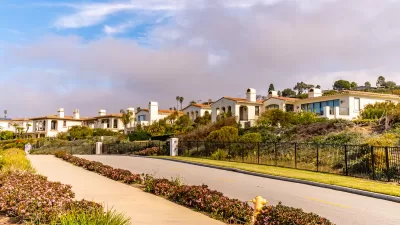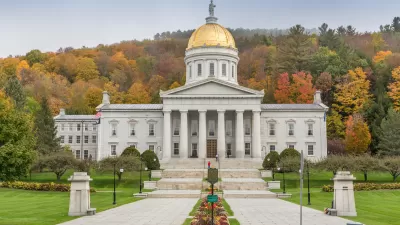Five California cities have won a lawsuit against the state over SB 9, a law passed in 2021 that effectively abolished single family zoning statewide.

A Los Angeles County judge has ruled that the California law abolishing single-family zoning across the state is unconstitutional. Passed in 2021, SB 9 allowed single-family homeowners to split their lots in two and build a home on each or convert their homes to duplexes, regardless of local zoning. The ruling means SB 9 now cannot be applied in any of the five Southern California cities — Redondo Beach, Carson, Torrance, Whittier, and Del Mar — that sued the state, and the judge is expected to produce a ruling next month that will strike down the law statewide, reports Kate Talerico for the Marin Independent Journal.
“At the heart of the case is local authority and what gives the state the right to interfere. In California, the constitution requires that state laws impeding cities’ local control must demonstrate a reasonable relationship between the legislature’s stated intention and the design of the law,” Talerico writes. The stated intention for SB 9 was improving housing affordability, but the judge ruled that the legislature’s intention doesn’t match up with the design of the law because the law doesn’t require any of the resulting units to be priced below market rate.
Advocates for local authority over land use and zoning consider the ruling a big win. Housing advocates say the judge’s definition of housing affordability was extremely narrow. Talerico reports that a simple clean-up bill to SB 9, like the one proposed in the legislature last year, could “render the Los Angeles court’s decision moot.”
FULL STORY: LA judge strikes down California lot-splitting law

Manufactured Crisis: Losing the Nation’s Largest Source of Unsubsidized Affordable Housing
Manufactured housing communities have long been an affordable housing option for millions of people living in the U.S., but that affordability is disappearing rapidly. How did we get here?

Americans May Be Stuck — But Why?
Americans are moving a lot less than they once did, and that is a problem. While Yoni Applebaum, in his highly-publicized article Stuck, gets the reasons badly wrong, it's still important to ask: why are we moving so much less than before?

Using Old Oil and Gas Wells for Green Energy Storage
Penn State researchers have found that repurposing abandoned oil and gas wells for geothermal-assisted compressed-air energy storage can boost efficiency, reduce environmental risks, and support clean energy and job transitions.

Greening Oakland’s School Grounds
With help from community partners like the Trust for Public Land, Oakland Unified School District is turning barren, asphalt-covered schoolyards into vibrant, green spaces that support outdoor learning, play, and student well-being.

California Governor Suspends CEQA Reviews for Utilities in Fire Areas
Utility restoration efforts in areas affected by the January wildfires in Los Angeles will be exempt from environmental regulations to speed up the rebuilding of essential infrastructure.

Native American Communities Prepare to Lead on Environmental Stewardship
In the face of federal threats to public lands and conservation efforts, indigenous groups continue to model nature-centered conservation efforts.
Urban Design for Planners 1: Software Tools
This six-course series explores essential urban design concepts using open source software and equips planners with the tools they need to participate fully in the urban design process.
Planning for Universal Design
Learn the tools for implementing Universal Design in planning regulations.
Heyer Gruel & Associates PA
City of Moreno Valley
Institute for Housing and Urban Development Studies (IHS)
City of Grandview
Harvard GSD Executive Education
Salt Lake City
NYU Wagner Graduate School of Public Service
City of Cambridge, Maryland





























